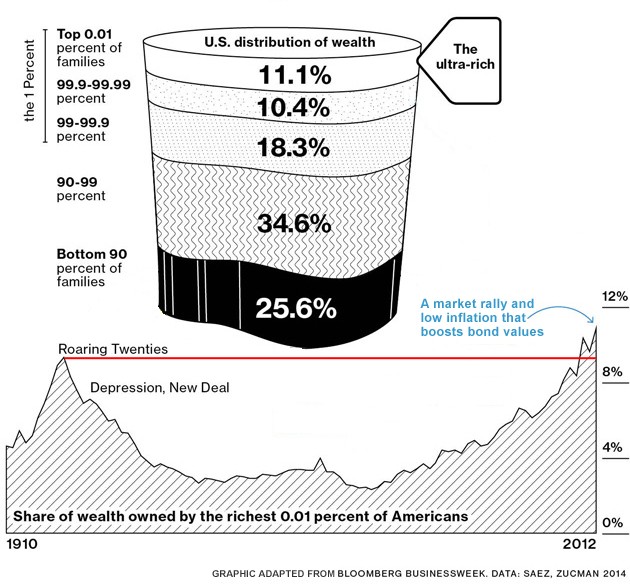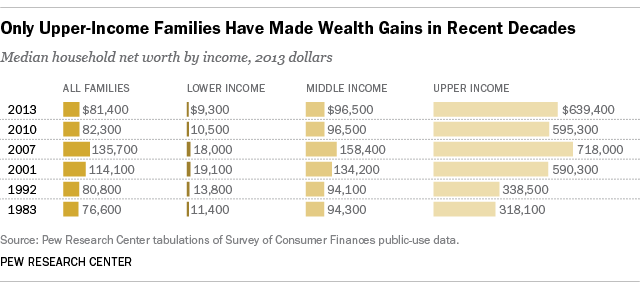A study on the wealth effect and the economy 8 News NOW
Post on: 7 Апрель, 2015 No Comment

From Our Money Partners
By Elvis Picardo
The wealth effect refers to the premise that consumers tend to spend more when there is a bull market in widely-held assets like real estate or stocks, because rising asset prices make them feel wealthy. The notion that the wealth effect spurs personal consumption makes sense intuitively. After all, wouldnt you be more inclined to buy that big-screen TV or SUV if your house or stock portfolio had appreciated nicely and you were sitting on huge gains?
Not so fast, say some experts, who say that housing gains do produce a wealth effect, but stock market gains do not. Regardless of whether it is being caused by real estate or the stock market, the lesson from history is that investors should treat the wealth effect with caution, since spending unrealized gains that may be susceptible to big swings is seldom a good idea.
Housing vs. Stock Market Wealth Effect
One of the most widely cited papers on the comparative wealth effect of the stock market versus the housing market was authored by economic luminaries Karl Case, Robert Shiller (developers of the Case-Shiller home price indices ), and John Quigley. Their paper, entitled Comparing Wealth Effects: the Stock Market versus the Housing Market, was first presented at the National Bureau of Economic Research Summer Institute in July 2001 and updated in 2005, when it attracted widespread attention due to the housing boom. (The full original article is available here .)
Case, Shiller, and Quigley said their research for the period 1982 to 1999 found at best weak evidence of a stock market wealth effect, but strong evidence that variations in housing market wealth have important effects upon consumption. They concluded that changes in housing prices should be considered to have a larger and more important impact than changes in equity prices in influencing consumption in the U.S. and other developed nations.
House Price Declines Cause Consumption Decrease
The authors updated their research in a new paper released in January 2013. in which they extended their study of wealth and consumer spending in a panel of U.S. states to an expanded 37-year period, from 1975 to the second quarter of 2012. Case, Shiller and Quigley said that while the earlier version of their paper found that households increase spending when house prices rise but found no significant decrease in consumption when house prices fell, their extended data analysis showed that house price declines stimulate large and significant decreases in household spending.
Specifically, an increase in housing wealth similar to the rise between 2001 and 2005 would boost household spending by a total of about 4.3% over the four years. Conversely, a drop in housing wealth comparable to the crash between 2005 and 2009 would cause a spending drop of about 3.5%.
Wealth Effect Skeptics
In a June 2009 article in The Wall Street Journal, three U.S. economists — Charles W. Calomiris of Columbia University, Stanley D. Longhofer and William Miles of Wichita State University — argued that the wealth effect of housing has been overstated, and that the reaction of consumption to housing wealth changes is probably very small. Referring to the 2005 study by Case, Shiller and Quigley, the economists article said that the estimation method used in the study was problematic, because the authors failed to take account of a simultaneity problem, which refers to the possibility that both consumption and housing prices were driven by changes in expected future income. When the economists used statistical techniques to the data to correct for the simultaneity problem, they found no housing wealth effect. Interestingly, in a few cases where the economists found that housing wealth did have an impact on consumer spending, the impact was always smaller in magnitude than that from stock wealth. This was contrary to the findings by Case, Shiller, and Quigley.
The Housing ATM
Detractors notwithstanding, the fact that a housing wealth effect does exist can be verified by the spending spree that millions of U.S. homeowners indulged in during the first decade of this millennium. The consumption binge was fuelled largely by equity extraction from residences. as homeowners in essence used them as automated teller machines (ATMs). According to a 2007 study by the Federal Reserve Board, equity extracted from homes was used to finance an average of about $66 billion in personal consumption expenditures (PCE) from 1991 to 2005, or approximately 1% of total PCE. While equity extraction financed an average of 0.6% of total PCE from 1991 to 2000, that share rose to 1.68% from 2001 to 2005 as housing boomed.
Mark Zandi, chief economist at Moodys Analytics. estimates that before the 2008-09 financial crisis, every $1 increase in housing wealth would produce $0.08 in extra spending, while every $1 in stock wealth gains would boost spending only by about $0.03. Zandi estimates that in the 2013 slow-growth economy, the wealth effect of housing and stocks has dropped to about $0.05 and $0.02 cents, respectively
Wealth Effect and Your Wealth
U.S. household wealth rose by $1.92 trillion in the third quarter of 2013 to a record $77.3 trillion, buoyed by surging stock markets and a rebound in housing. Household net worth was more than $8 trillion above the pre-recession peak of $69 trillion reached in 2007.
If you do not feel especially wealthy despite that stellar performance, you are not alone. Here are some pointers for coping with the effect of the wealth effect on your personal wealth.

Focus on wealth creation and preservation Your focus should be on creating wealth during positive wealth effect periods, and preserving wealth during negative wealth effect periods. But such wealth creation and preservation should be attempted in a measured manner, and not by taking an inordinate degree of risk.
Avoid aggressive tactics when markets are hot Extracting equity from your home to spend on a vacation or buy stocks is generally not a good idea. Period.
Dont be swayed by get rich quick tales Speculators who attempted to day trade stocks on a big scale in the late 1990s faced financial ruin when the market crashed in 2001-02. Real estate investors who snapped up multiple properties in the last decade faced a similar fate when the U.S. real estate market endured its steepest correction since the 1930s Depression. Tune out the bragging by those who profess to have made it big by (excessive) speculation. and refrain from using more leverage than your finances can comfortably handle.
Dont fight the trend The easiest way to create wealth is by staying with the trend. Being a contrarian can pay off sometimes, but if your timing is off, you may have to bear sizeable losses. As an example, short-sellers who were skeptical about the relentless advance in most U.S. stocks in 2013 had little choice but to abandon their short positions after incurring huge losses.
Pay attention to wealth preservation Wealth creation is only half the equation; wealth preservation is the other half. If you are concerned about the possibility of an imminent steep correction in the markets, use trailing stops and option strategies to protect your gains.
Stay attuned to valuations and signals Since these can provide an early warning of an impending turnaround in investor sentiment. While it is extremely difficult to pinpoint market tops and bottoms, simple strategies like taking some money off the table at record highs and adding quality companies at multi-year lows are usually sound tactics for wealth creation.
The Bottom Line
While house price gains produce a distinct wealth effect, stock price gains do not seem to have the same effect, possibly because of the perception that they are more ephemeral. But irrespective of the source of the wealth effect, spending unrealized gains lavishly is not fiscally prudent and may result in such consumers finding themselves in severe financial strain when boom turns to bust, as was the case with the technology bubble of the late 1990s and the real estate mania in the first decade of this millennium.
Originally posted on Investopedia.com














